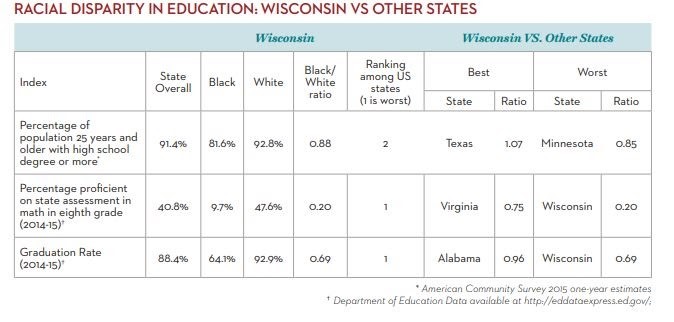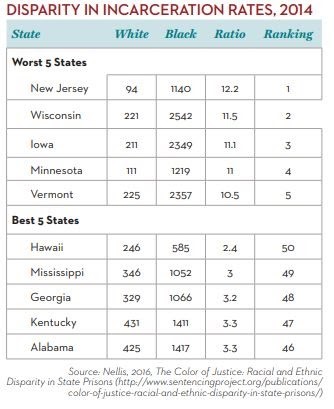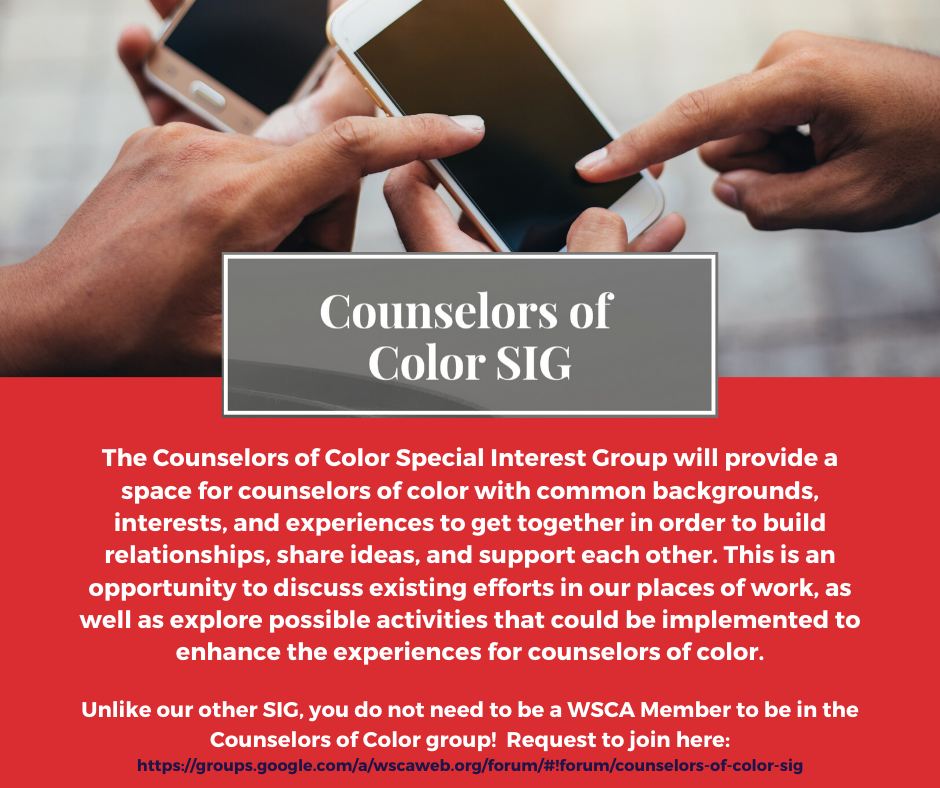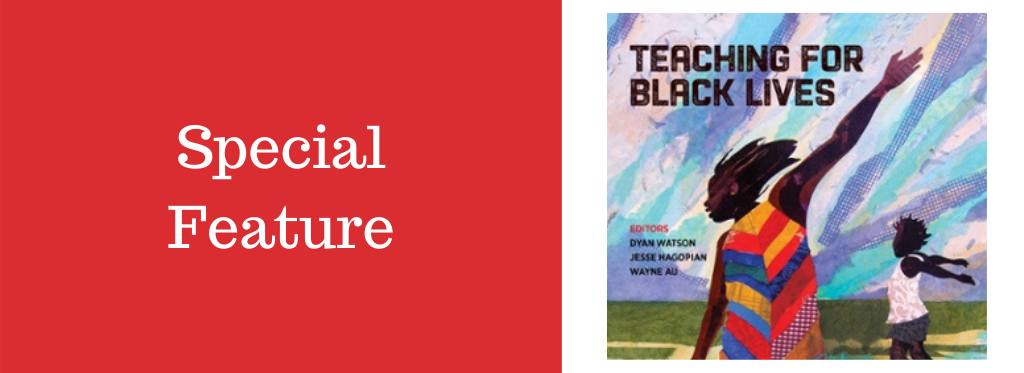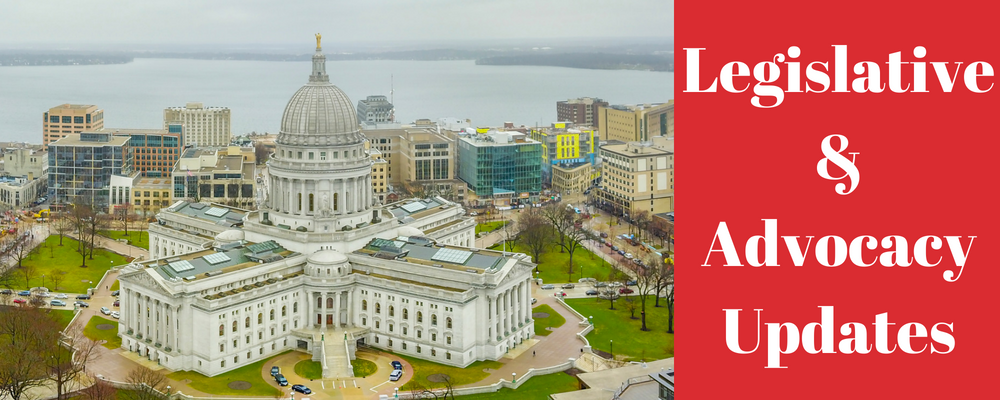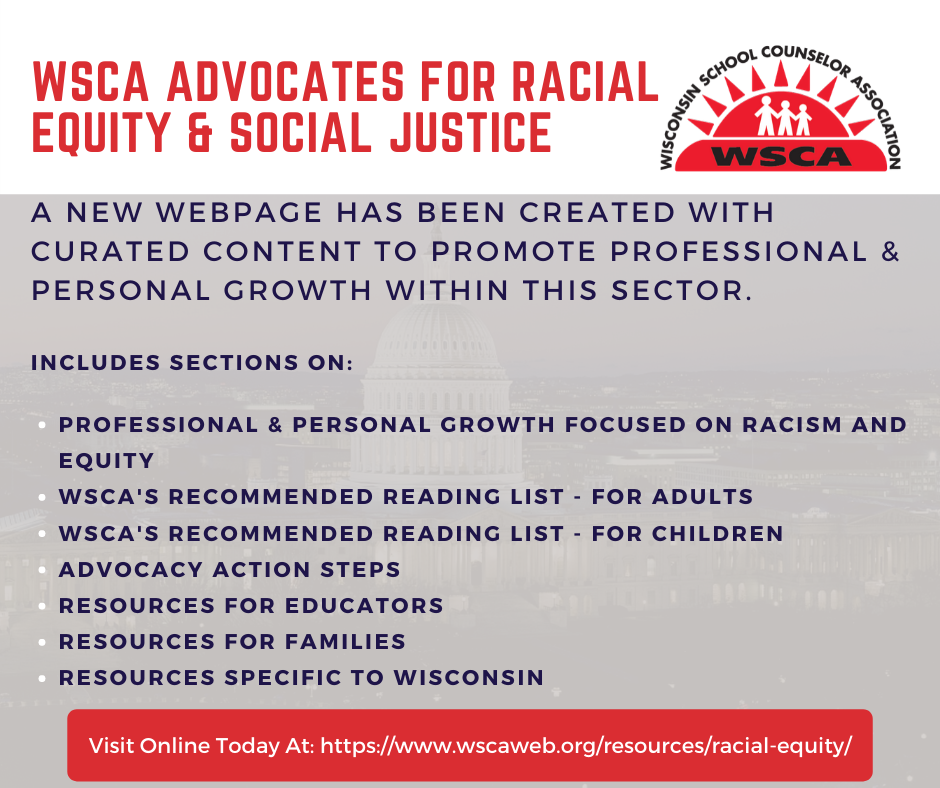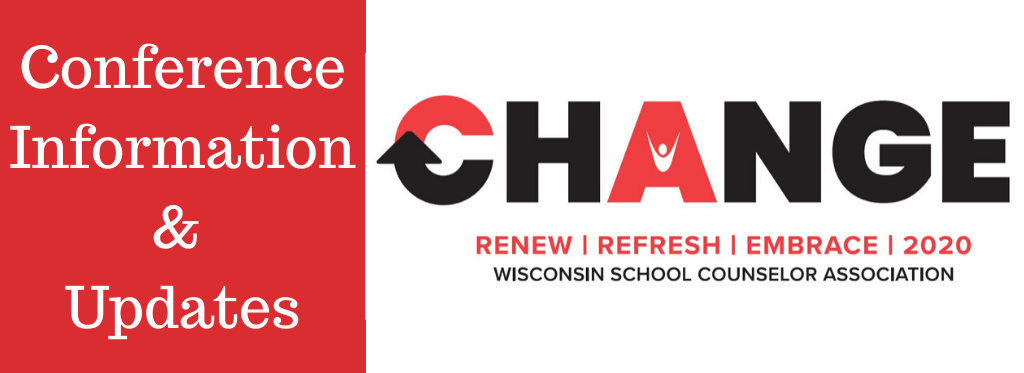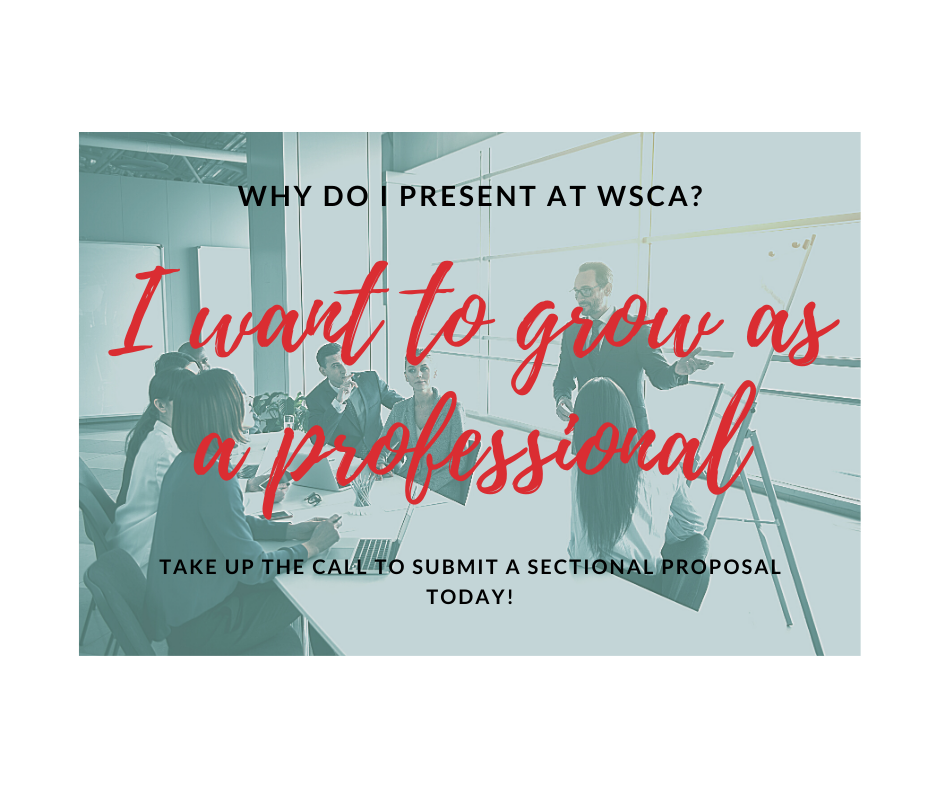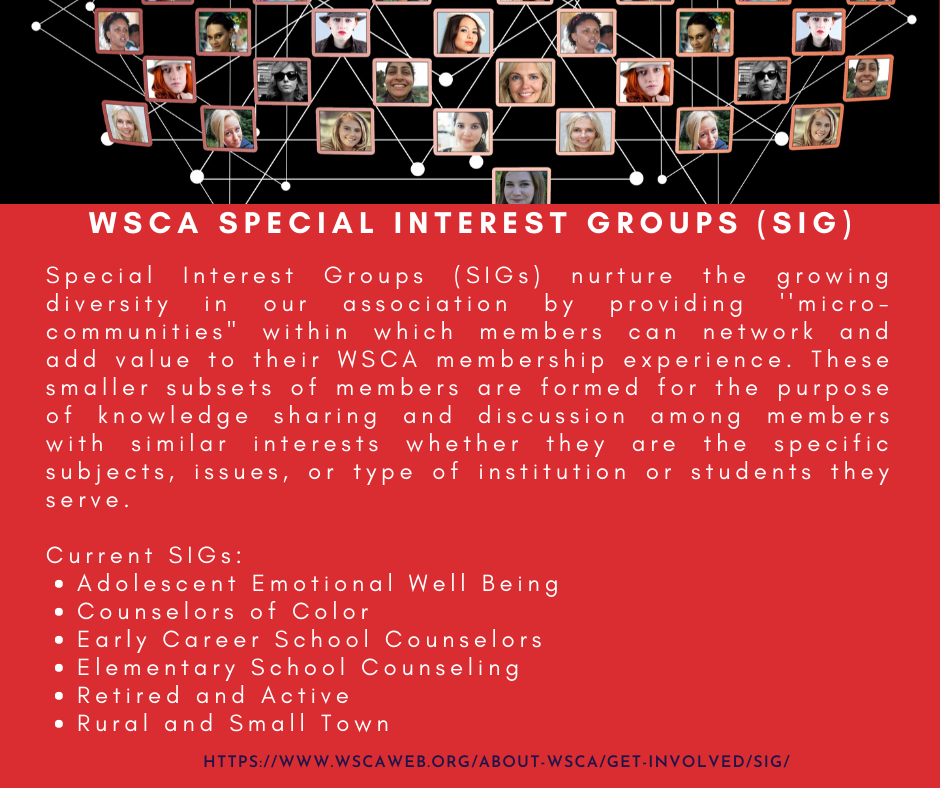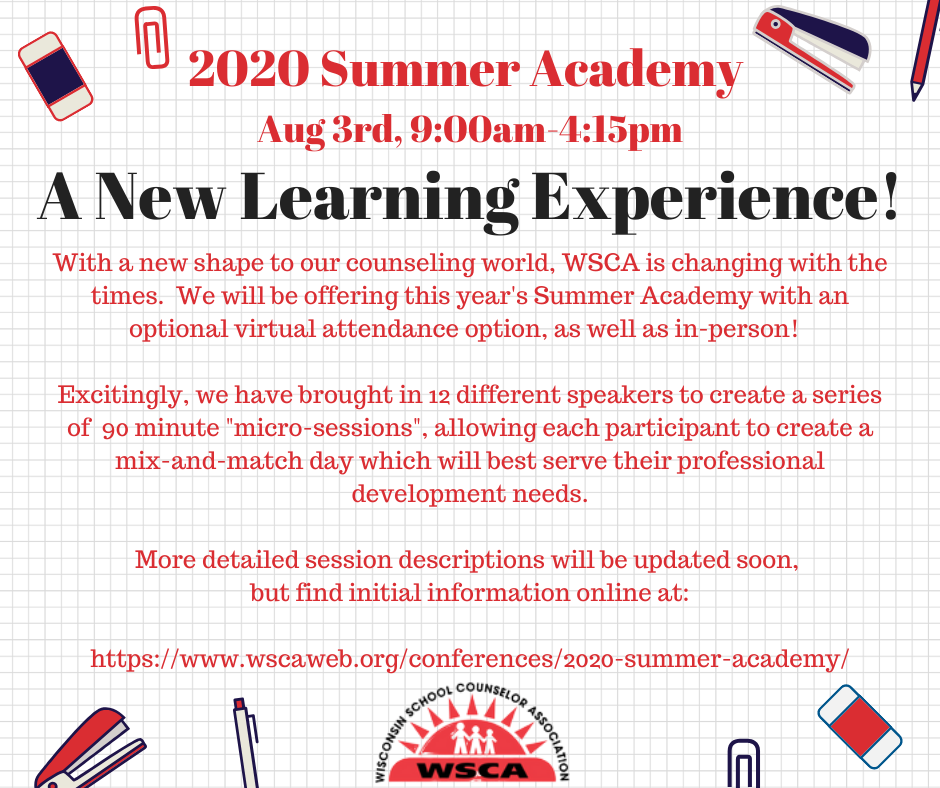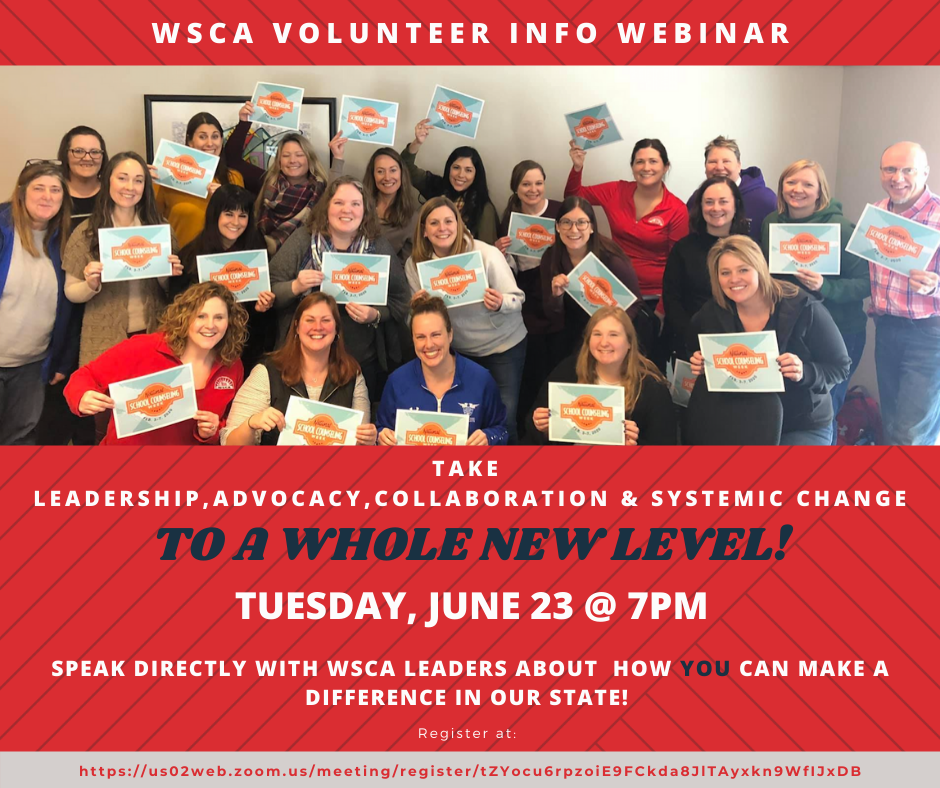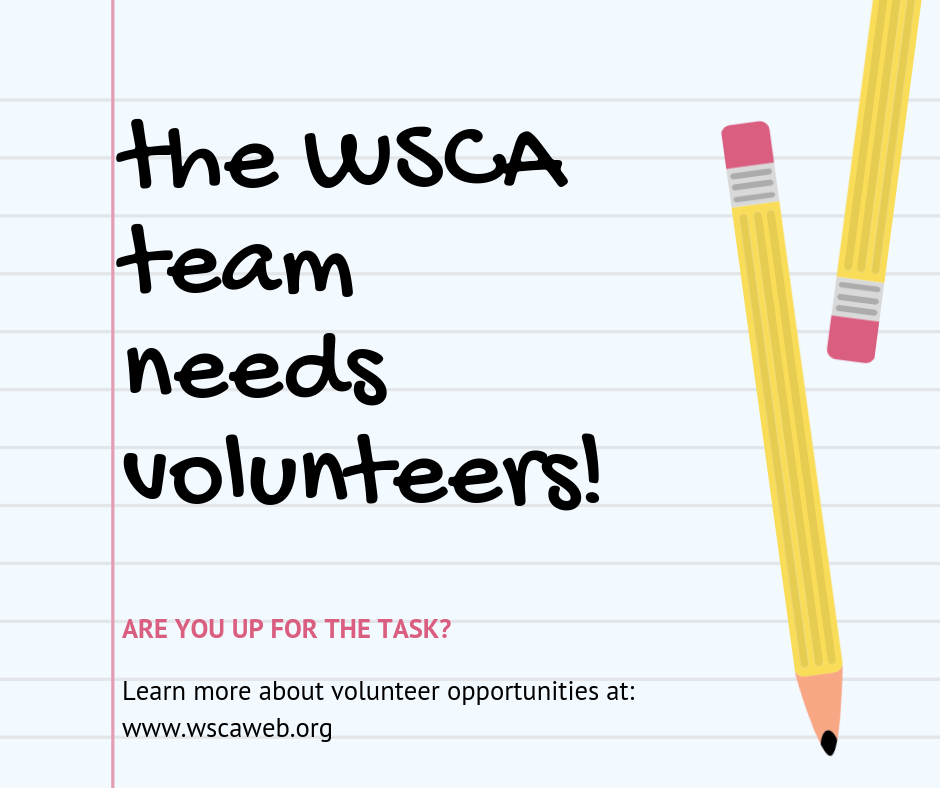June 2020

In This Issue:
- A Message from the Executive Director
- Join WSCA’s Counselors of Color Special Interest Group
- A Message from the WSCA Board
- Feature Article – Equity – Prioritizing Personhood
- Special Feature – Doing the Work to Support My Students of Color
- Legislative Update – NEW Racial Equity web page on wscaweb.org
- 2020-2021 Conference Updates – Sectional Presenters Needed!
- Did you Know? – Other Special Interest Groups
- Upcoming Events & Committee Updates – Summer Academy: A New Learning Experience!
- Volunteering with WSCA Informational Webinar
- WSCA Volunteers Needed
Stacy Eslick, WSCA Executive Director
Dear WSCA members,
My message this month is to my White counselor colleagues. Being raised in small towns and a home grown Wisconsin native, I have been acculturated to be “midwest nice” and the “why can’t we just all get along” philosophy that permeates our state. As I have been reflecting on my experiences over the past 25 years serving youth and families my heart aches for the Black community and it is so hard to put into words what is tumbling through my head. Acknowledging those feelings is just the start, what is most important at this time is conversations centered on what the White community has to do right now, in the near future and the long term to make a difference for African Americans.
WSCA leaders stand in solidarity with the Black community as they continue to struggle in an unjust and racist system that led to the horrific murder of not just George Floyd but Sandra Bland, Michael Brown, Tony Robinson, John Crawford, Tamir Rice, Philando Castile, Alton Sterling, Breonna Taylor, Ahmaud Arbery and countless others. White people can no longer fall back on these deaths being isolated incidents, they are the result of racial injustice and institutionalized racism.
For far too long (since the inception of our state) we have systematically oppressed people of color. White people can no longer ignore the systemic racism and institutionalized practices that harm people of color, especially Black people living in Wisconsin. Alicia Oglesby and Rebecca Atkins write this in Interrupting Racism: Equity and Social Justice in School Counseling: “Racism is not simply the dislike or hate of another person. Racism is about systems that marginalize people of color. It’s a systemic issue. Because of this, racism is a force only acted upon people of color and “reverse racism” cannot exist.” Anneliese A. Singh, PhD, LPC shares the following in the Racial Healing Handbook: Practical Activities to Help You Challenge Privilege, Confront Systemic Racism, and Engage in Collective Healing: “The term “antiracist” refers to people who are actively seeking not only to raise their consciousness about race and racism, but also to take action when they see racial power inequities in everyday life.” In the book Teaching for Diversity and Social Justice, the authors define White privilege as: “White privilege is about the concrete benefits of access to resources and social rewards and the power to shape the norms and values of society which Whites receive, unconsciously or consciously, by virtue of their skin color in a racist society.” This is not a matter of being nice or getting along, Black people are dying. We have an ethical and moral responsibility to help our young people learn how to be anti-racist.
This is especially true for our predominantly White communities where students have little interaction and experience with those outside the White majority. Will your students know how to interact, live, and work alongside people that are different from them? Will we be graduating students that are culturally competent so they can truly be college, career and community ready?
Wisconsin’s long history of oppression and segregation will take a lot of heavy lifting and work on the part of the White community to dismantle. It is critical that we understand the frustration and anger in the Black community stems from decades upon decades of marginalization and thousands of deaths. There is no disputing the facts that make Wisconsin one of the worst states for Black people to live in.
The tenants of school counseling are leadership, advocacy, collaboration and systemic change. The WSCA Board has been embracing equity work by digging into learning and hosting member listening sessions on the topic of equity. The Directors of Operations have been putting equity at the forefront with a targeted focus on increasing resources and professional development for members. As a predominately White member based organization we recognize and acknowledge the need for continued learning in racial justice as well as taking action. We are committed to not just admiring the problem but working alongside fellow educators and community partners to support systemic change. Counselors across the state are coming together to engage in uncomfortable and challenging conversations demonstrating leadership and support for the Black community. As an organization we are asking ourselves what more we can and should do to live our commitments to diversity, equity, and inclusion. Join us as we begin this work, additional information can be found at /resources/racial-equity/ .
Collectively we will make an impact!
~Stacy
Andrea Donegan, WSCA Board Chair
School Counselor at Dyer Intermediate School, Burlington, WI
Dear WSCA Members,
It is with a heavy heart that I write this month’s Board message. It is with renewed energy and determination that I commit to using my voice and more importantly, my actions to stop racism and violence against people of color, to support antiracist school counseling pedagogy, and to advocate for schools where ALL students, especially students of color, feel safe, valued, noticed, and supported. Equitable practices and systemic changes are essential to all of the work we do as school counselors. Without equitable systems and intentional plans, our best efforts to create students with strong academic, social-emotional, and career skills is undermined. At the end of the day, the question remains, “have we made it an ongoing priority to address and end racism, inequities, prejudice, and discrimination in our school counseling program, our school system, our personal and professional communities?” Our ethical standards demand it, our humanness begs for it.
The WSCA Board of Directors is committed to equity and cultural responsiveness and the WSCA organization is supporting equity work of school counselors in many ways, as outlined in the June message from our Executive Director, Stacy Eslick. Over the past year and continuing into next year, the Board has been focusing our learning and professional development on the topic of equity in order to help support school counselors through the Wisconsin School Counselor Association. Our learning has included reading, discussion, and reflection related to key issues, ideas, and information from our book list: The Other Wes Moore, White Fragility, and Just Mercy. This learning, along with input from members will guide WSCA’s ENDS policies that define the benefits to members which will occur as a result of our work. The END’s are, in essence, the vision of our organization, and equitable practices are included in these ENDS policies. The Board will continue to seek input from all of you, engage in professional development around equity, and maintain steadfast in supporting the work of school counselors toward these ends. Please reach out to us to share your vision, knowledge, ideas, concerns and questions.
Thank you for the work that you have done, the work that you are doing, and the work yet to come. We are in the most strategic position as school counselors – to teach children directly; to advocate at the individual, school, and system level; and to be leaders amongst our colleagues and community.
“The ultimate measure of a man is not where he stands in moments of comfort and convenience, but where he stands at times of challenge and controversy.” Dr. Martin Luther King, Jr.
With faith that together we will help build a better world,
~Andrea
Equity – Prioritizing Personhood
By: Shawn Harris M.S. & Carri Hale M.S.
Shawn and Carri are school counselors at Verona Area High School and have presented at the WSCA conference multiple times on the critical importance of equity.
This is a reprint of an article originally published in November 2019.
Intro: To help every student feel accepted and find their potential, school counselors must be change agents actively engaged in disrupting institutionalized racism. School counselors by profession adhere to the themes of Collaboration, Leadership, Social Justice and Systemic Change (ASCA, 2019). We challenge you to become grounded in the work for social justice, to be an antiracist, and to get on your journey as a HUMAN, so that in your position of power you can lead toward change.
Wisconsin school counselors: please know that social justice work applies to you even if you don’t think your school is “diverse”. It is imperative that all of our students understand the fundamental principles of respecting others and holding judgment upon that which you don’t know. Students need to understand the hate behind the noose and swastika: the ignorance behind Black face and appropriating dances from other cultures. As leaders in our buildings it is our due diligence to ensure that our students emerge as true world citizens.
Social Justice: the belief that society should not discriminate against any group or individual and a call to action to disrupt entities that do. As school counselors, we have a responsibility to help students identify social injustice and equip them with the tools to resolve injustices in their lives. Racism, sexism, and poverty directly impact our students’ trajectories. These injustices must be interrupted if students are to live in a just society. “This is their world and they need to be aware that they have choices to make and actions to take that will help shape what their world will be like in the future. School counselors have an important role to play in helping students understand the need for respect of self and others, for embracing meaningful relationships that promote individual and social growth, and work to change where that is not occurring” (Squier, 2019).
Because of the versatility of our school counselor role and skill set, we have a unique opportunity to lobby for equity on a number of fronts including schools, communities and in legislation. We can provide space for student activism and voice as advisors for affinity groups, work as brokers for partnerships with community resources and change agents in political arenas.
A preliminary step in fulfilling that role is doing the work within ourselves to interrogate our own traditions and beliefs, with the goal of redirecting those values towards the progress of all students while interrupting discriminatory practices.
Trauma: Students carry scars from trauma and we see it in the staggering statistics that disproportionately impact marginalized communities. Doing things the way we have always done them has stifled student success rates and undermined the credibility of schools as safe and supportive environments for students and their families. An emphasis on equity is the best vehicle for disrupting status quo teaching/learning practices that are not inclusive of the skills and experiences of all students.
Financial cost is not an adequate excuse to not build equity in our schools. Equity is an investment we cannot afford to lose out on. It is an investment in personhood (doing the work) and a commitment to celebrating the personhood of others.
Advocacy: As leaders it is our job to take on inequalities as social justice advocates in our schools. To this end, we have to do the work within ourselves. As school counselors, we must understand our biases so we can disrupt systemic programming and choose to respond in a different way. This means learning to pause and reflect, to ensure that our actions bring the balance of power to underserved students, and that what we do does not cause unintentional harm. It is imperative that we work with our administration teams and school districts to advocate for systemic change that truly disrupts predictable outcomes. For every student to succeed, they must have a sense of belonging and acceptance within our entire community.
How to take action: Are you aware of the following terms? Institutionalized/Structural Racism, White fragility, Historical Trauma, Implicit Bias, Microaggressions and Allyship. If not, do your research: There are many ways to learn and grow. Understand your school and community history. Take a look at how the evolution of your community aligns with institutional racism. Think about what it means to be an ally. Take a look at your school data and question, question, question. Who is failing? Who is suspended? Who is sent for office referrals? Why? It doesn’t matter where you are on the journey of understanding, what matters is that you are on the journey. Do your own work. Do a book study. Join a conversation about race. Speak up. Our students need us to be savvy and persistent warriors. Our white students need us to show the way; our students of color and non majority students need us to constantly work to disrupt the system.
Resources
American School Counselor Association (2019). The ASCA national model: A framework for school counseling programs (4th ed.). Alexandria, VA: Author.
Squier, K.L. (2016). A construct based approach to implementing comprehensive school counseling programs. http://excellenceinschoolcounseling.com/wp-content/uploads/2016/03/2.1.4.4-Social-Justice-5-1-16.pdf
Doing the Work to Support My Students of Color
Marianne Matt, MMSD
School Counselor, Capital High and SAPARPublications Director, WSCA
During this time of civil unrest, justified anger, and uncertainty around our health, I am reflecting on the fact that I can not support my students with their emotions and decisions on their actions in the way that I would normally. I cannot offer a look of concern, or a pat on the arm, or even a moment with me to process what they are feeling and doing. I can offer resources via email or text and offer time to connect virtually but I know that I am not reaching my most marginalized students or that if I am, they may not have the ability to reach back out. My students are hurting. Our communities are hurting. Our country is hurting. As a white school counselor in a school of mostly African American and Latinx students I know that I will never understand how my students and their families are feeling after this weekend of protest, civil unrest, and news footage and commentary.
This knowledge leads me to begin planning for the fall when I may or may not be able to see my students again; when they will need social emotional support to step into an educational system that is fraught with racist policies. What I do know is that if I don’t take this moment in our history to reflect on my privilege then I am serving no one well. The ongoing journey towards antiracism and anti racist education starts within. For those of us who are white school counselors, we need to do the work on ourselves to understand our own racism as well as the racist policies that exist. We cannot ask our Black colleagues and colleagues of color to lead this work (unless they volunteer). We need to organize ourselves to form the book club, to actively engage in conversations that are uncomfortable, to challenge our own thoughts and notions, and to challenge policies that are not serving any of our students well. I know that when I go back to school in the fall I want to show up ready to receive my students and ready to help them actualize their dreams. By working to understand my own biases, my own racism, I will be able to better serve my students and, hopefully, begin to impact change.
Here is my offering of resources as a place to start: Teaching for Black Lives from Rethinking Schools; How To Be An Antiracist by Dr. Ibram X. Kendi; White Fragility by Robin Diangelo; The Little Book of Racial Healing by Thomas DeWolf and Jodie Geddes.
WSCA has been offering many ideas on how to engage on our Facebook page. Please reach out if you have ideas for how we can engage, as an organization, in this very important work.
~Marianne



